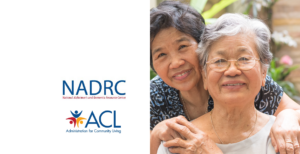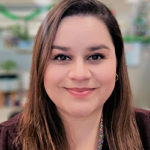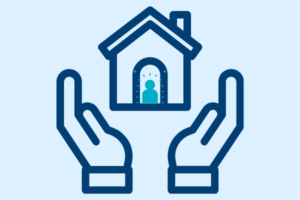Professional Education
Upcoming Trainings:
More programs to be announced.
Past Events:
Alcohol-related Dementia
What is the relationship between alcohol and dementia? Join us to learn about how heavy alcohol use increases risks for dementia and ways we can promote healthier living through reduced consumption. Presented by guest speaker Mitsuo Tomita, M.D., a retired family practice physician at Kaiser Permanente and a former Assistant Clinical Professor on the voluntary faculty of the UCSD School of Medicine.
*This project is supported by the Health Resources and Services Administration (HRSA) of the U.S. Department of Health and Human Services (HHS), as part of grant number U1QHP53055, Geriatric Workforce Enhancement Project award totaling $5 million. The contents are those of the author(s) and do not necessarily represent the official views of, nor an endorsement, by HRSA, HHS or the U.S. Government.
Supporting Those with IDD and Dementia
This is a training for professionals working with people living with intellectual and developmental disabilities about how Alzheimer’s and dementia affects this vulnerable population. Topics include the causes of dementia, adapting to changes in behavior, and planning for safety concerns.
*This project was supported by grant number 90ADPI0066-01-00 from the U.S. Administration for Community Living, Department of Health and Human Services, Washington, D.C. 20201. Grantees undertaking projects under government sponsorship are encouraged to express freely their findings and conclusions. Points of view or opinions do not, therefore, necessarily represent official Administration for Community Living policy.
Planning Cognitively Stimulating Activities
For people living with dementia, continuing to participate in activities that engage their minds is a necessity. This training for professionals from any part of the geriatric care industry provides insightful strategies for creating and planning these activities. Attendees will learn about how brain changes due to dementia affect how someone engages, the needs they have for cognitive stimulation, how to think about quality of life, and ways to create dementia-friendly activities. The class is co-presented with Mindy Baker, Director of Education, George G. Glenner Alzheimer’s Family Centers, Inc.
*This project is supported by the Health Resources and Services Administration (HRSA) of the U.S. Department of Health and Human Services (HHS), as part of grant number U1QHP53055, Geriatric Workforce Enhancement Project award totaling $5 million. The contents are those of the author(s) and do not necessarily represent the official views of, nor an endorsement, by HRSA, HHS or the U.S. Government.
Understanding and Adapting to Personality and Behavior Changes
People with Alzheimer’s disease and other dementias can experience behavior and personality changes. Learn why these changes happen, what they mean, what you can do to address them, and how to handle your reactions using the IDEA! strategy. Co-presented with Ian Neel, MD, Medical Director, Geriatric Medicine Consult Service at Senior Behavioral Health, Associate Clinical Professor at UCSD Health.
Ian Neel, MD, is a board-certified internal medicine doctor who specializes in caring for older adults. He serves as medical director of the Geriatric Medicine Consult Service at Senior Behavioral Health at UC San Diego Health. Additionally he is the geriatric medicine consultant for UC San Diego’s Brain Health and Memory Disorders program. Dr. Neel completed a fellowship in geriatric medicine and a residency in internal medicine at UC San Diego School of Medicine, where he also earned his medical degree. He is board certified in internal medicine and geriatric medicine. He has been selected by his peers in a survey for San Diego Magazine as one of San Diego’s Top Doctors for the past three years.
*The San Diego/Imperial Geriatric Education Center (SDIGEC) has been funded by the U.S. Department of Health and Human Services, as part of their Geriatrics Workforce Enhancement Program (GWEP) to develop the next generation of geriatric health workers in San Diego and Imperial Counties.
Dementia 202: Safety, Communication, and Behavior
This intermediate training for professionals will teach you how to maintain safety, communicate effectively, address challenging behaviors, and support the caregivers of people living with dementia. The training is co-presented with Susan Valoff, LCSW, CDP, CGP.
*The San Diego/Imperial Geriatric Education Center (SDIGEC) has been funded by the U.S. Department of Health and Human Services, as part of their Geriatrics Workforce Enhancement Program (GWEP) to develop the next generation of geriatric health workers in San Diego and Imperial Counties.
Lighten Up: The Uses of Laughter in Dementia Care
Join Alzheimer’s San Diego for a fun and informative look at the physiological benefits of laughter, and how to use it as a tool to connect with people living with dementia, support care partners, and care for yourself as a professional. This free workshop for professionals was made possible by support from the San Diego/Imperial Geriatric Education Center.
*The San Diego/Imperial Geriatric Education Center (SDIGEC) has been funded by the U.S. Department of Health and Human Services, as part of their Geriatrics Workforce Enhancement Program (GWEP) to develop the next generation of geriatric health workers in San Diego and Imperial Counties.
Dementia Basics for Law Enforcement
Law enforcement plays an important role in keeping people living with dementia safe. In this free training you will learn:
- The causes and common symptoms of dementia
- Key safety concerns for people living with dementia and their caregivers
- Effective communication and response techniques
- Local resources for additional support
This training is open to all law enforcement personnel and volunteers at no cost, with support from the Bureau of Justice Assistance.
Not all Dementias are the Same: Understanding Frontotemporal Degeneration (FTD)
The group of brain disorders known as frontotemporal degeneration or frontotemporal dementia (FTD) is frequently misdiagnosed and remains poorly understood. It is also the most common form of dementia in people under age 60. FTD produces different symptoms than Alzheimer’s disease and other forms of dementia, but takes an equally heavy emotional, physical, and financial toll. The goal of this free two-part series, taught by the team at Alzheimer’s San Diego and a nationally recognized FTD expert and advocate, is to help professionals in various settings better understand the unique needs of people living with FTD and their care partners.
This free online training is available at no cost, thanks to support from the San Diego/Imperial Geriatric Education Center.
Dementia Training for Law Enforcement Personnel: Building Partnerships to Enhance Community Safety
 *Includes one complimentary Continuing Education (CE) credit.*
*Includes one complimentary Continuing Education (CE) credit.*
As the prevalence of Alzheimer’s disease and related dementia increases, law enforcement agencies across the country are increasingly called upon to respond to dementia-related incidents: wandering, abuse, domestic disturbances and more. By collaborating with local dementia support organizations, law enforcement entities can better identify, understand and support the needs of people living with dementia and those who care for them. This webinar will review the development of a successful local law enforcement dementia training program, describing the key challenges and lessons learned for its ongoing implementation. Participants will learn strategies for successful outreach and program development that they can use to develop partnerships with law enforcement in their communities.
Participants in this webinar will be able to:
- Describe three key strategies for identifying and reaching out to law enforcement agencies in their region;
- Explain at least four essential dementia training topics for law enforcement personnel; and
- Define three elements of a successful voluntary registry program for vulnerable populations.
Presenters:
 Amy Abrams, MSW, MPH, has worked in the field of long-term care in San Diego for more than 20 years, in care management, dementia care and community health education. She is a certified Positive Approach to Care dementia trainer. Abrams serves as the Director of Education for Alzheimer’s San Diego, a local nonprofit whose mission is helping people affected by dementia, fighting stigma, and supporting research.
Amy Abrams, MSW, MPH, has worked in the field of long-term care in San Diego for more than 20 years, in care management, dementia care and community health education. She is a certified Positive Approach to Care dementia trainer. Abrams serves as the Director of Education for Alzheimer’s San Diego, a local nonprofit whose mission is helping people affected by dementia, fighting stigma, and supporting research.
 Monica Cordero has worked in law enforcement for seven years, as an Emergency Services Dispatcher, Community Services Officer and is now a Crime Prevention Specialist for the San Diego Sheriff’s Department. Cordero holds certifications in traffic investigations and Crime Prevention Through Environmental Design. She now works in the Financial Crimes & Elder Abuse Unit informing the public on scams, as well as coordinating the county-wide Take Me Home program.
Monica Cordero has worked in law enforcement for seven years, as an Emergency Services Dispatcher, Community Services Officer and is now a Crime Prevention Specialist for the San Diego Sheriff’s Department. Cordero holds certifications in traffic investigations and Crime Prevention Through Environmental Design. She now works in the Financial Crimes & Elder Abuse Unit informing the public on scams, as well as coordinating the county-wide Take Me Home program.
Managing Dementia-Related Behaviors in the Home: Ensuring Quality of Life and Caregiver Safety
 Working with clients who exhibit dementia-related behaviors such as wandering, agitation, or disinhibition can present physical and emotional risks to professionals, in-home caregivers, and family members alike. If you serve aging clients or people with cognitive impairment living at home, watch this webinar with Amy Abrams, Director of Education at Alzheimer’s San Diego, and Susan Valoff, Vice President at Windward Life Care. You will learn:
Working with clients who exhibit dementia-related behaviors such as wandering, agitation, or disinhibition can present physical and emotional risks to professionals, in-home caregivers, and family members alike. If you serve aging clients or people with cognitive impairment living at home, watch this webinar with Amy Abrams, Director of Education at Alzheimer’s San Diego, and Susan Valoff, Vice President at Windward Life Care. You will learn:
- Behavioral strategies for addressing agitation in clients with dementia
- Strategies for creating safe and positive work environments for in-home caregivers
- Resources for supporting clients living with dementia
This online training is available at no cost, thanks to support from the San Diego/Imperial Geriatric Education Center, and Windward Life Care.
Supporting People with Dementia who Live Alone
 Learn about the unique needs of people with Alzheimer’s disease and other dementias who live alone, best practices in reaching and supporting this vulnerable population, and the local resources and services available to support you and your clients. Presented by Amy Abrams, Director of Education and Adrianna McCollum, Director of Social Programs & Volunteers. Download handouts from the webinar here >>
Learn about the unique needs of people with Alzheimer’s disease and other dementias who live alone, best practices in reaching and supporting this vulnerable population, and the local resources and services available to support you and your clients. Presented by Amy Abrams, Director of Education and Adrianna McCollum, Director of Social Programs & Volunteers. Download handouts from the webinar here >>
This free workshop for professionals was made possible by support from the San Diego/Imperial Geriatric Education Center.
NACCM AV Club: Who is In Charge Anyway? An Exploration of Personal Empowerment and the Film “I Care a Lot”
Presented by the National Academy of Certified Care Managers
Grab some popcorn, queue up the Netflix, and then make plans to join us for a timely and informative discussion about one of this year’s big hits. “I Care a Lot” left many viewers wondering: Could this really happen? We’ll use this stylish drama about a corrupt legal guardian who drains the savings of her elderly and disabled wards as a starting point to talk about basics of estate planning, conservatorship, and guardianship, and how we can support clients in remaining in control of their lives and livelihoods. This informative webinar will include lecture and live facilitated dialogue with presenter Marguerite Lorenz, a Master Trustee and Managing Partner at Lorenz Private Trustees.
The webinar, the fourth installment of the NACCM AV Club Webinar series, will be followed by a Q&A session moderated by Alzheimer’s San Diego Director of Education Amy Abrams, MSW/MPH, CMC-Ret.
Tools for Dementia Care Management
In this evidence-informed training, you’ll get the tools you need to provide family-centered care to individuals living with dementia – and to support their care partners. Live interactive learning modules will cover:
- The fundamentals of Alzheimer’s disease and other forms of dementia
- Communication techniques
- The IDEA! behavioral management approach
All attendees will receive a digital workbook filled with materials, assessment templates, informational tip sheets, and more.
This webinar will be held using Zoom, and is available at no charge to local professionals, thanks to the support of the San Diego/Imperial Geriatric Education Center and the U.S. Department of Health and Human Services Geriatrics Workforce Enhancement Program.
Lighten Up: The Uses of Laughter in Dementia Care
Join Alzheimer’s San Diego for a fun and informative look at the physiological benefits of laughter, and how to use it as a tool to connect with people living with dementia, support care partners, and care for yourself as a professional. This free workshop for professionals was made possible by support from the San Diego/Imperial Geriatric Education Center.
Click here to download slides from this program >>
NACCM AV Club: ‘Crip Camp’ & Disability Then & Now
Presented by the National Academy of Certified Care Managers
 For this third installment of the NACCM book club webinar series, we bring you: a movie! Grab some popcorn, queue up the Netflix, and then make plans to join us for a timely and informative discussion. What is “disability” and what is it not? The Netflix original documentary “Crip Camp” follows the lives of several young campers with disabilities, who became leaders in the U.S. disability rights movement of the 1970s. Disability services expert Abby Kovalsky, LCSW will help us view disability from a historical perspective, and review the laws and language of the current paradigms. Learn what is needed to work effectively with individuals and families who live with disability related issues, and how aging with a disability is different from aging into a disability.
For this third installment of the NACCM book club webinar series, we bring you: a movie! Grab some popcorn, queue up the Netflix, and then make plans to join us for a timely and informative discussion. What is “disability” and what is it not? The Netflix original documentary “Crip Camp” follows the lives of several young campers with disabilities, who became leaders in the U.S. disability rights movement of the 1970s. Disability services expert Abby Kovalsky, LCSW will help us view disability from a historical perspective, and review the laws and language of the current paradigms. Learn what is needed to work effectively with individuals and families who live with disability related issues, and how aging with a disability is different from aging into a disability.The goal of this event is to help Care Managers understand what disability is in the context of our current society and to be better able to work with people with disabilities. After this presentation, attendees will be able to:
- Define disability
- State the 3 models of disability and what each means
- State the defining legislation affecting this population
- State at least 3 ways people with disabilities are discriminated against
Tools for Dementia Care Management
A free, 2-part webinar for professionals
 In this evidence-informed training, you’ll get the tools you need to provide family-centered care to individuals living with dementia – and to support their care partners. Live, interactive learning modules will cover:
In this evidence-informed training, you’ll get the tools you need to provide family-centered care to individuals living with dementia – and to support their care partners. Live, interactive learning modules will cover:
- The fundamentals of Alzheimer’s disease and other forms of dementia
- Communication techniques
- The IDEA! behavioral management approach
All attendees will receive a digital workbook filled with materials, assessment templates, informational tip sheets, and more.
This training is available at no charge to local professionals, thanks to the support of the County of San Diego and a grant from the U.S. Department of Health and Human Services, Administration for Community Living.
Meeting the Needs of LGBTQ+ People Living With Dementia
Online Webinar via Zoom
Presented by Windward Life Care
 People in the LGBTQ+ community who have dementia or who are caregivers to friends, family, or chosen family members with dementia, have unique needs. If you are a member of the community or a professional concerned with diversity and inclusion, we invite you to join us for this live webinar with Dr. Daniel Sewell, Associate Vice Chair, Geriatric Psychiatry at UC San Diego and Amy Abrams, MSW/MPH, Director of Education at Alzheimer’s San Diego.
People in the LGBTQ+ community who have dementia or who are caregivers to friends, family, or chosen family members with dementia, have unique needs. If you are a member of the community or a professional concerned with diversity and inclusion, we invite you to join us for this live webinar with Dr. Daniel Sewell, Associate Vice Chair, Geriatric Psychiatry at UC San Diego and Amy Abrams, MSW/MPH, Director of Education at Alzheimer’s San Diego.
This webinar, moderated by Katie Powers, Director of Business Development of Windward Life Care, will explore:
- The prevalence and impact of Alzheimer’s disease and other types of dementia in San Diego County’s LGBTQ+ community
- The dementia caregiving experience in the LGBTQ+ community
- Providing culturally sensitive care to LGBTQ+ people and their caregivers
- Local resources for dementia diagnosis, symptom management, and caregiver support
The Hearing & Cognition Connection
Online webinar using Zoom
Hearing loss affects one in three older adults in the U.S. today, impacting personal safety, social connection, and quality of life for many. Join us to learn the primary causes of hearing loss, its relationship to dementia risk and other health conditions, and recent treatment innovations.
Presented by Alzheimer’s San Diego and Professional Hearing Associates, Inc., with support from the San Diego/Imperial Geriatric Education Center.
Dementia & Gun Safety
Learn from Alzheimer’s San Diego and federally-licensed gun experts. This workshop will cover:
- How dementia impacts the safe use of firearms
- What you need to know about firearms
- How to talk to clients about guns
- Understanding gun laws
- Options for securing & transferring firearms
- And more…
Presented by Jeff Brooker, Deputy City Attorney; John Phillips, Poway Weapons & Gear; and Amy Abrams, MSW/MPH, Alzheimer’s San Diego.
The Art of Dying Well: A Practical Guide to a Good End of Life
A webinar with author Katy Butler
A live conversation with award-winning journalist and bestselling author Katy Butler as she discusses her research and findings about the step by step preparations – practical, communal, physical, medical, and spiritual – that make a “good decline” and a “good death” more likely.
Presented by the National Academy of Certified Care Managers and moderated by Amy Abrams, MSW/MPH of Alzheimer’s San Diego.
Quacks or Facts? Making sense of the latest “Alzheimer’s breakthroughs”
In this modern information age, it can be difficult to tell pseudoscience from the real deal in Alzheimer’s research. At this workshop, you’ll learn how to:
- Evaluate the credibility of sources (scholarly versus popular publications)
- Separate anecdotal from empirical evidence
- Understand online search results & the limits of Google
- Identify what to share (and what not to share)
- Best support the health literacy of your clients
Presented by Amy Abrams, MSW/MPH, Alzheimer’s San Diego & Kathy Quinn, MLS, Herrick Community Health Care Library.